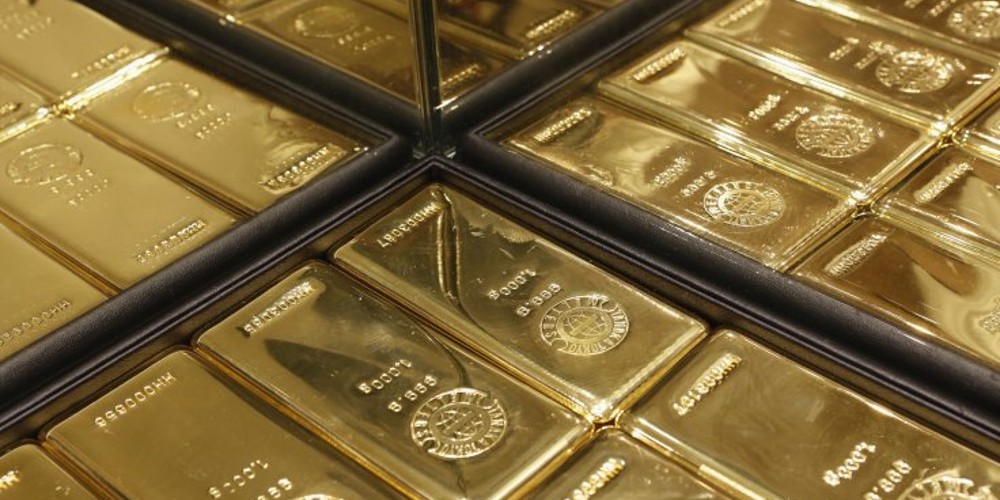Excluding another big sale by Turkey, central banks were net buyers of gold in May, according to the latest data compiled by the World Gold Council.
Eight central banks added gold to their reserves in May with net purchases totaling 50 tons. But with Turkey dumping another 63 tons of gold in May, global net central bank gold holding fell by 27 tons.
Turkey has sold nearly 160 tons of gold since March. According to the World Gold Council, this is a response to local market dynamics and doesn’t likely reflect a change in the Turkish central bank’s long-term gold strategy.
According to the WGC, “Gold was sold into Turkey’s domestic market to satisfy very strong bar, coin and jewelry demand following a temporary partial ban on gold bullion imports.”
According to a Reuters report, the Turkish government suspended some gold imports in February in an effort to soften the economic impact of significant earthquakes.
Poland was the biggest buyer in May, adding 19 tons of gold to its reserves. This follows on the heels of a 15-ton increase in April when the National Bank of Poland resumed buying gold. May’s purchase was the largest increase in the country’s reserves since June 2019 when the bank boosted gold holdings by almost 100 tons.
In the fall of 2021, Bank of Poland President Adam Glapiński said the central bank planned to add 100 tons of gold to its reserves in 2022. It’s unclear why the bank didn’t follow through. This recent purchase could signal the beginning of another round of buying to reach that 100-ton goal.
Poland currently holds 263 tons of gold.
The People’s Bank of China extended its gold buying spree for a seventh-straight month with a 16-ton addition to its official reserves.
Since recommencing reports of purchases in November 2022, the Peoples Bank of China has added 144 tons to its official gold holdings. Officially, Chinese gold holdings stand at 2,092 tons.
The Chinese central bank accumulated 1,448 tons of gold between 2002 and 2019, and then suddenly went silent until it resumed reporting in November 2022. Many speculate that the Chinese continued to add gold to its holdings off the books during those silent years.
There has always been speculation that China holds far more gold than it officially reveals. As Jim Rickards pointed out on Mises Daily back in 2015, many people speculate that China keeps several thousand tons of gold “off the books” in a separate entity called the State Administration for Foreign Exchange (SAFE).
Last year, there were large unreported increases in central bank gold holdings. Central banks that often fail to report purchases include China and Russia. Many analysts believe China is the mystery buyer stockpiling gold to minimize exposure to the dollar.
The central banks of Singapore (4 tons), Russia (3 tons), India (2 tons), the Czech Republic (2 tons), Iraq (2 tons), and the Kyrgyz Republic (2 tons) were the other notable buyers.
A statement by the Iraqi central bank said, “The purchase came with the aim of increasing its holdings of gold in light of the economic and political conditions that the world is witnessing.”
Along with Turkey, the Central Bank of Uzbekistan and the National Bank of Kazakhstan were both sellers, reducing their holdings by 11 tons and 2 tons respectively. These two banks were the biggest sellers of gold during the first quarter of this year. It is not uncommon for banks that buy from domestic production – such as Uzbekistan and Kazakhstan – to switch between buying and selling.
Despite the dip in overall global reserves in April and May due to Turkish selling, it doesn’t appear central banks have lost their appetite for gold. After a record-setting 2022, central banks continued to buy gold in the first quarter of 2023, setting a new Q1 record.
Overall, global central bank gold reserves increased by 228 tons through the first three months of 2023. This was 38% higher than the previous first-quarter record set in 2013.
Total central bank gold buying in 2022 came in at 1,136 tons. It was the highest level of net purchases on record dating back to 1950, including since the suspension of dollar convertibility into gold in 1971. It was the 13th straight year of net central bank gold purchases.
According to the 2023 Central Bank Gold Reserve Survey recently released by the World Gold Council, 24% of central banks plan to add more gold to their reserves in the next 12 months. Seventy-one percent of central banks surveyed believe the overall level of global reserves will increase in the next 12 months. That was a 10-point increase over last year.
Article cross-posted from Zero Hedge.
It’s becoming increasingly clear that fiat currencies across the globe, including the U.S. Dollar, are under attack. Paper money is losing its value, translating into insane inflation and less value in our life’s savings.
Genesis Gold Group believes physical precious metals are an amazing option for those seeking to move their wealth or retirement to higher ground. Whether Central Bank Digital Currencies replace current fiat currencies or not, precious metals are poised to retain or even increase in value. This is why central banks and mega-asset managers like BlackRock are moving much of their holdings to precious metals.
As a Christian company, Genesis Gold Group has maintained a perfect 5 out of 5 rating with the Better Business Bureau. Their faith-driven values allow them to help Americans protect their life’s savings without the gimmicks used by most precious metals companies. Reach out to them today to see how they can streamline the rollover or transfer of your current and previous retirement accounts.


